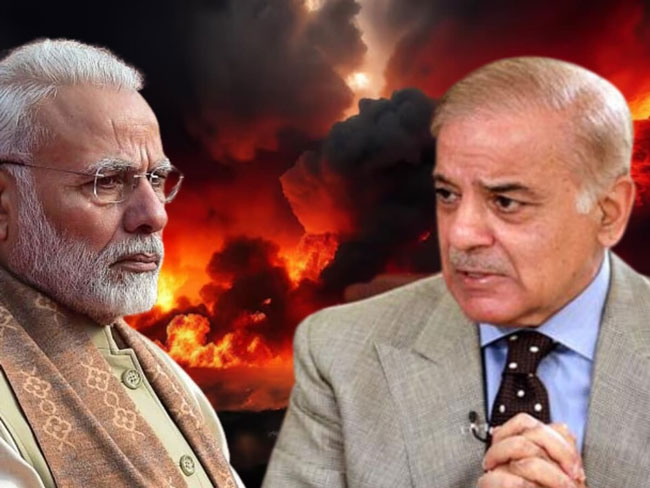Desk : Following the brutal terrorist attack in Pahalgam’s Baisaran Valley, tensions between India and Pakistan have surged to a critical level. The attack, carried out by Lashkar-e-Taiba (LeT) terrorists, resulted in the killing of 25 innocent tourists and one local Kashmiri resident. A preliminary investigation by the National Investigation Agency (NIA) has confirmed a nexus between Pakistan’s intelligence agency ISI and LeT.
India has directly held Pakistan responsible for the attack, while Islamabad has denied the allegations. Amid fears of a strong Indian military response, Pakistan has evacuated several terrorist launch pads and training camps near the Line of Control (LoC).
Pakistan Reacts to India’s Tough Posture
According to a Times of India report, Pakistan has withdrawn terrorists from three key launch pads in Jammu Division—Shakargarh (near Kathua), Samahni (near Nowshera), and Sukmal (near Hiranagar). Prior to April 22, these sites hosted 10–12 militants from LeT, Jaish-e-Mohammed (JeM), and other groups. All these launch pads are now reportedly vacant.
Sources say Pakistani Army troops and Rangers, who usually oversee infiltration operations along the LoC, have also been withdrawn from these sites. This is being interpreted as a precautionary move to avoid an Indian surgical or air strike, similar to those conducted after the Uri (2016) and Pulwama (2019) attacks.
Pakistan Increases Military Readiness
Pakistan’s Defence Minister Khawaja Asif recently stated that India could take military action at any time. In anticipation, Pakistan has begun deploying military assets to its Northern Air Command, a move being seen as preparation for a limited conflict with India.
ISI, LeT Behind the Attack: NIA Investigation
The NIA and other Indian intelligence agencies have discovered that the attack was orchestrated with significant involvement from ISI. The lead attacker, Hashim Musa, was a former special forces soldier in the Pakistani army who was “loaned” to LeT by the ISI specifically for this mission to target civilians and security forces in Kashmir.
Investigations also revealed that the attackers were in encrypted communication with handlers in Pakistan and local Overground Workers (OGWs) via a secure app named Ultra, which was used during the Pahalgam operation. Surveillance has intercepted several chats where OGWs discussed the presence and guidance of Pakistani terrorists in the region.
So far, over 15 OGWs have been identified who provided logistical support, conducted reconnaissance, and arranged shelter for the attackers.
India’s Strong Response
In response to the Pahalgam attack, India has taken multiple stringent measures:
- Suspension of Indus Waters Treaty: India has halted water flow that supplies over 80% of Pakistan’s share.
- Closure of Attari-Wagah Border: Both nations have sealed their borders, leaving hundreds stranded.
- Deportation of Pakistani Nationals: India has ordered all Pakistani nationals to leave the country within 48 hours and cancelled their visas.
- Diplomatic Downgrade: Both nations have significantly reduced diplomatic staff in each other’s embassies.
Prime Minister Narendra Modi has granted the armed forces “free hand” to decide the time, place, and mode of retaliation. Union Home Minister Amit Shah declared, “Every terrorist involved in the Pahalgam attack will be hunted down and punished.”
Rising Tensions Along the LoC
Since the attack, there has been a noticeable increase in cross-border firing along the LoC. Pakistani troops have unprovokedly fired across five districts in Jammu & Kashmir for eight consecutive nights. In response, Indian forces have retaliated strongly.
Fear of war has gripped border villages, prompting residents to clean and prepare both community and personal bunkers as a precautionary measure.




